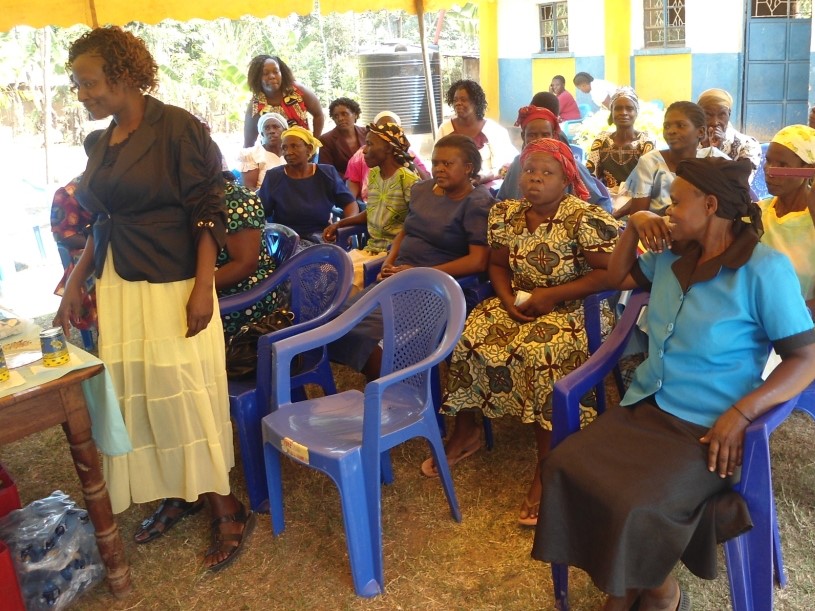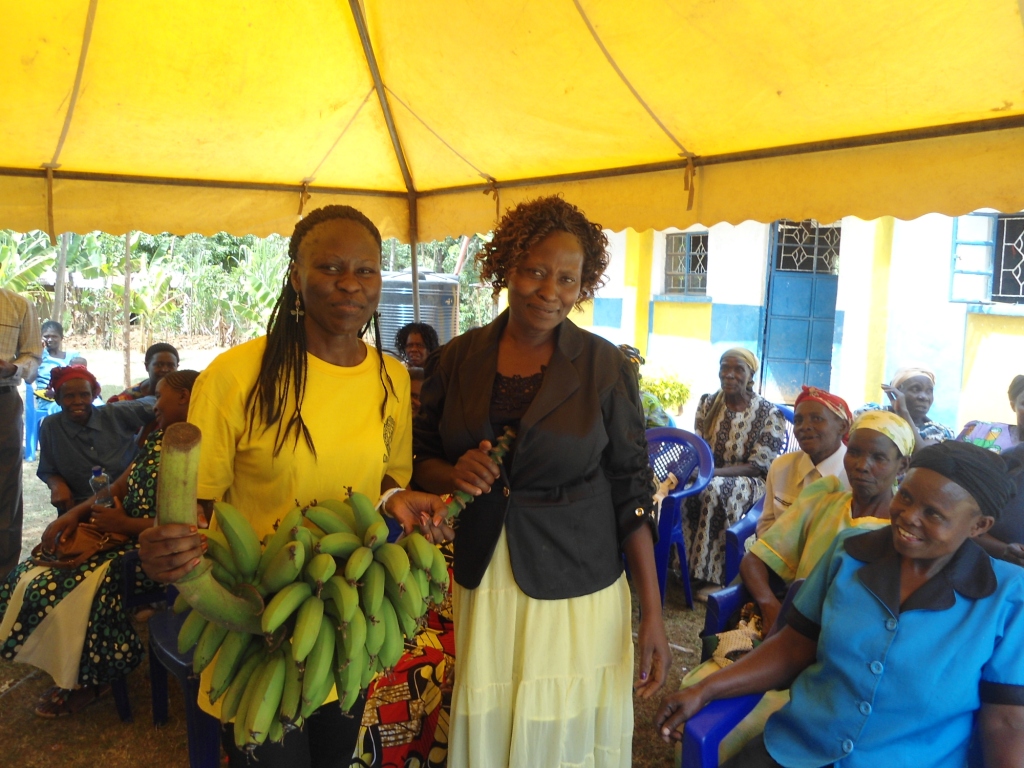Project Description
Promote sustainable organic kitchen gardening and dairy goat Keeping (Kenya)
- Focus: Women’s Empowerment
- Location: Esabulu village (Kenya)
- Start date: As soon as possible (12-months project)
- Club / Union : Soroptimist Club of Kisumu (Kenya)
- Number of women/girls this project reached/will reach: 50
Funds needed:
€ 6,083.34
Goals of the project:
To build the capacity of women in Esabalu Village through hands-on training activities in sustainable organic kitchen gardening and dairy goat keeping for improved food security, health and economic empowerment whilst igniting leadership skills in women and girls through formation and strengthening of existing Self Help Groups to build resilient communities in the face of Climate Change and HIV/AIDS pandemic.
Objectives of the project:
- to formulate, demonstrate and promote skill development on healthy organic kitchen gardening techniques and dairy goat keeping to diversify and increase the household income in a rural community;
- to establish community organic kitchen gardening and dairy goat keeping demonstration units and train local women and girls to provide support and advisory services to community members;
- to build strong community owned and managed institutions in form of Women Self Help Groups (SHGs) with a focus on capacity building to ignite leadership skills and promote active community participation and social inclusion for sustainable livelihood development;
- to network with Government, NGOs, CBOs and other stakeholders for advocacy and policy level changes aimed at improving the lives of vulnerable women and girls in a rural community;
- to sensitize vulnerable women and girls on various emerging issues such as HIV/AIDS and Climate Change.
Methods of implementing the project:
SI Club of Kisumu members will facilitate project activities in Esabalu Village, Kenya. Capacity building workshops will be conducted to sensitize women and girls on the importance of pooling their resources in Self Help Groups (SHGs) and establishing sustainable dairy goat keeping and organic kitchen gardens to grow nutritious vegetables, herbs and fruits in a small space that requires minimum input in terms of time and financial resources. SHGs rules and monthly subscriptions will be decided during the trainings which will be conducted by SI Club of Kisumu members, personnel from the County Ministry of Agriculture and personnel from rural microcredit institutions. These sessions will also inform participants on the various government and microcredit schemes, plans and programs available at the ward and sub-county levels.
Simultaneously, women will develop confidence and strong leadership skills through training and practice. The meetings will facilitate group formation and selection of key members such as president, secretary and treasurer. These roles will be rotational to give opportunity to all members to hone their leadership skills. The SHGs will provide a platform where the women will have a voice, develop basic administrative skills and develop capability in negotiating with and accessing support from rural banks and marketing agencies. Group formation will ensure that poorer households and the most vulnerable members are not excluded.
Context
Esabalu Village is located in rural Western Kenya and the community is characterized by traditional practices and norms in a highly patriarchal society which promotes gendered roles and discrimination of girls and women against participation in decision making in the family and community. Women have poor representation in community leadership positions denying them the chance to articulate and address their issues since they have limited voice in community governance. This is further worsened by high illiteracy rates, low levels of entrepreneurial skills, scanty resources, underdeveloped infrastructure, and low levels of agricultural output, food insecurity and malnutrition resulting in high poverty levels. Additionally, the impacts of Climate Change have deteriorated land fertility and productivity. Vulnerable community members such as poor widows, elderly women, women living with disabilities and the girl child are most affected. Most of the households are headed by elderly women, young jobless widows or girl children due to HIV related death cases.
Majority of women and girls experience a heavy agricultural workload in farms which are increasingly become smaller due to land fragmentation forcing them to take up alternative forms of unskilled labour in an attempt to make ends meet. The women lack access to financial and non-financial services like microcredit, market linkage and institutional building linkage. It is against this background that SI Club of Kisumu has partnered with women in Esabalu Village to tap the potential of developing women’s leadership and economic empowerment through the formation and strengthening of existing Self Help Groups (SHGs) that can be actively involved in sustainable organic kitchen gardening and dairy goat keeping to improve livelihoods. Production of vegetables and herbs in and around the house and keeping of dairy goats make a substantial contribution to the food security of the poorest segments of society. If well managed, SHGs can enable women to grow their savings and access bank credit. SHGs can also be community platforms where socially excluded groups especially women can become active in community affairs, learn and enhance their leadership skills, vie for local elective political positions and take action to address social or community injustices.
Evaluation – Follow-up
SI Club of Kisumu will make close follow up on the project activities from the onset and send comprehensive quarterly reports to SIE and the sponsoring SI Club/s. Project review meetings will be organised to review the progress after every three months. The meetings will be facilitated by the Club members, community members and key stakeholders. Proceedings will be recorded and documented for future reference. The Club will continue to monitor the project periodically even after its completion.


